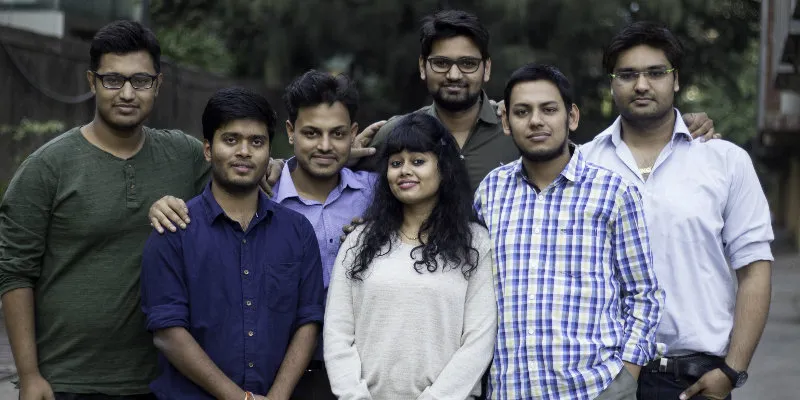Mumbai-based mydidi.in allows you to avail domestic services on pay-per-minute system
Day-to-day squabbles with maids, cook, and nanny for quality services and punctuality have become a passé. The yearning to solve pain-points of society always run in the blood of startups. The last couples of years have seen the mushrooming of a host of online home services.
Jhonny Jha observed that though the industry has focussed on solving the ‘discovery’ problem in terms of domestic helpers, creating a fleet of trained professionals (maids) still remains a question. In June 2015, he has started mydidi.in in Mumbai to enable women professionals (domestic helpers) gain upward social mobility through skill building.

Twenty-seven-year-old Jhonny graduated from IIT Bombay in 2012. After graduation, he spent three years with McKinsey & Co. in Dubai, where he worked across different sectors like tourism, healthcare, infrastructure, and education.
A social impact
Jhonny started mydidi with an initial investment of $1,50,000. The greatest challenge was to convince the marginalised community to get trained and be acquainted with this tech-enabled on-demand model. Mumbai-based mydidi.in launched its first product ‘Spotless’ to help maids overcome their inhibitions. Over a period of two months, the company has trained around 50 didis, which depicts the consistent success of this model.
Jhonny says,
Didi is an on-demand, hyperlocal platform for excellence in high-frequency services provided by trained, apprenticed, and tech-enabled women entrepreneurs. Our venture has been bootstrapped by investment from co-founders. The co-founder investors are the alumni of Mckinsey which includes Leo Wang, Founder of Anthropic, an early stage venture firm based out of US and Jozef Bardik, Principal at Werbau, VC firm based out of Europe."
Training process
Mydidi gathers women into a community cells based on their location and then make them undergo gamified-based trainings, which involves associative learning techniques (mnemonics, pop culture references, and more) and on-ground practice sessions in a model home setup. The entire cell is then accredited and put on the platform. The startup then connects the trained didis to the hyperlocal consumers.
Jhonny avers,
We launched 'Spotless' in restricted suburbs of Mumbai in mid-October and have already served over 1,200 orders clocking 2,500 productive man hours. Our repeat customers have been over 75 per cent of the total order volume.”
Didi app (currently available in Android) allows you to book on-demand household service between 7 am and 7 pm. Once the booking is done a didi will arrive within an hour and they get paid Rs 149 per hour. The platform also allows the user to track the didi in real time and connect with contact centre for any support. On the supply front, the startup also created a vendor Android app that the didis use to monitor their performance, accept orders, and keep account of the money they make.
With 12 employees and seven off-roll employees, mydidi is spread across Mumbai, currently covers Chandivali, Powai, Ghatkopar, Andheri, Goregaon, Juhu and Versova. Mydidi app has so far seen 800 downloads.
Revenue structure
Out of the total amount the startup receives from the orders, a certain portion goes towards didi’s salary and some towards fulfillment costs (e.g. logistics, kit material, etc.) and the remaining amount, counts as its margin. The startup receives 800–1,000 orders per month and is growing at a rate of 50 per cent month-on-month in terms of gross revenue.
We decide the charges of the service and the didis receive a certain part of it as commission. The didis get paid by two models – fixed monthly salary, wherein they need to commit a certain number of hours on the platform, and variable salary, where they make income based on the number of orders that they have served,” avers Jhonny.
By 2016, the startup plans to train around 2,000–3,000 didis in Mumbai and Bengaluru (soon to be operational). It expects to have gross revenue of around Rs 1.5–2 crore.
YourStory take
Trained and efficient maids are historically affordable to wealthy section of society given the minimal disposable income. Gone are the days where women used to be confined to only household management, today the societal and lifestyle shifts have allowed women to push its boundaries beyond that. However, with the rise of dual income families, the demand of domestic services is skyrocketing. US, UK, and Canada are cram-full with thousands of residential cleaning services. The industry over the years has transformed significantly with the usage of innovative technologies.
Progressively, India has also witnessed a demand of these services which has given birth to a plethora of startups like Nanojobs, Honestcollars, BookMyBai, Getdomestic, maidservices.in, KamlaBai.com, Homemaid.in, and more. Most of these startups serve as a one-stop solution for maids, baby sitters, cooks, and caretakers. Though mydidi claims to be distinctive with its “pay per minute” service, the startup needs to focus more on marketing, innovations in technology and segmentation in terms of specific domestic services to keep the momentum going on.







